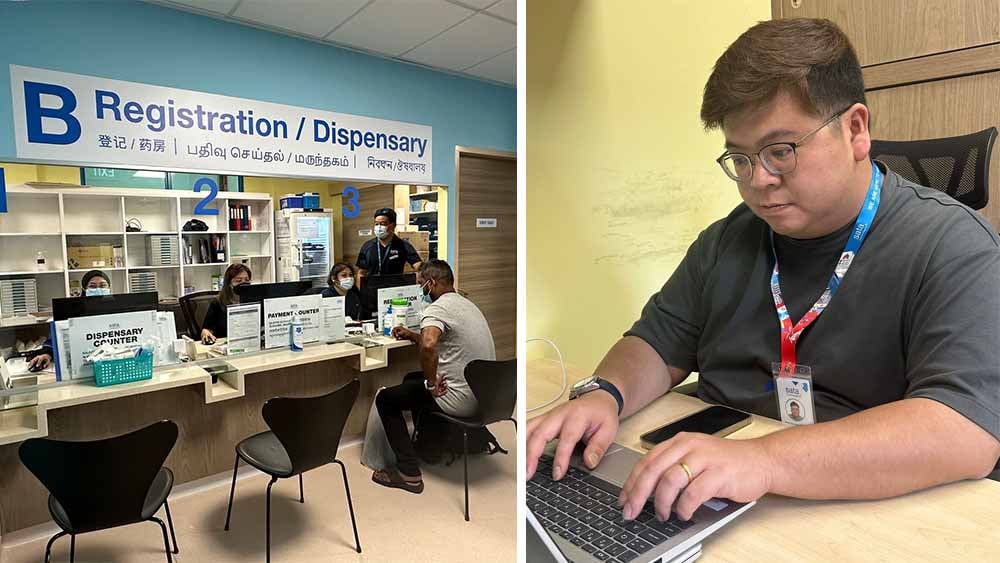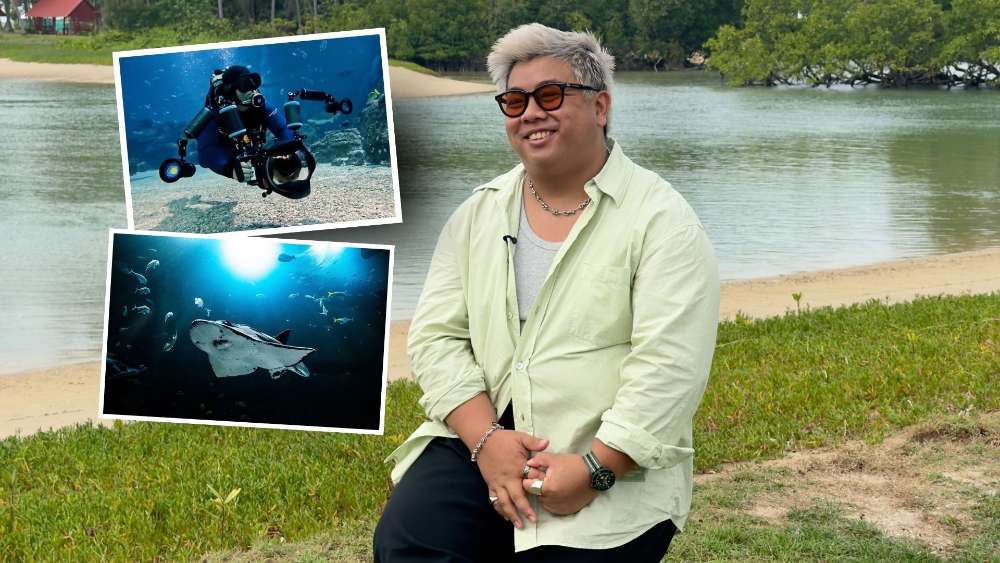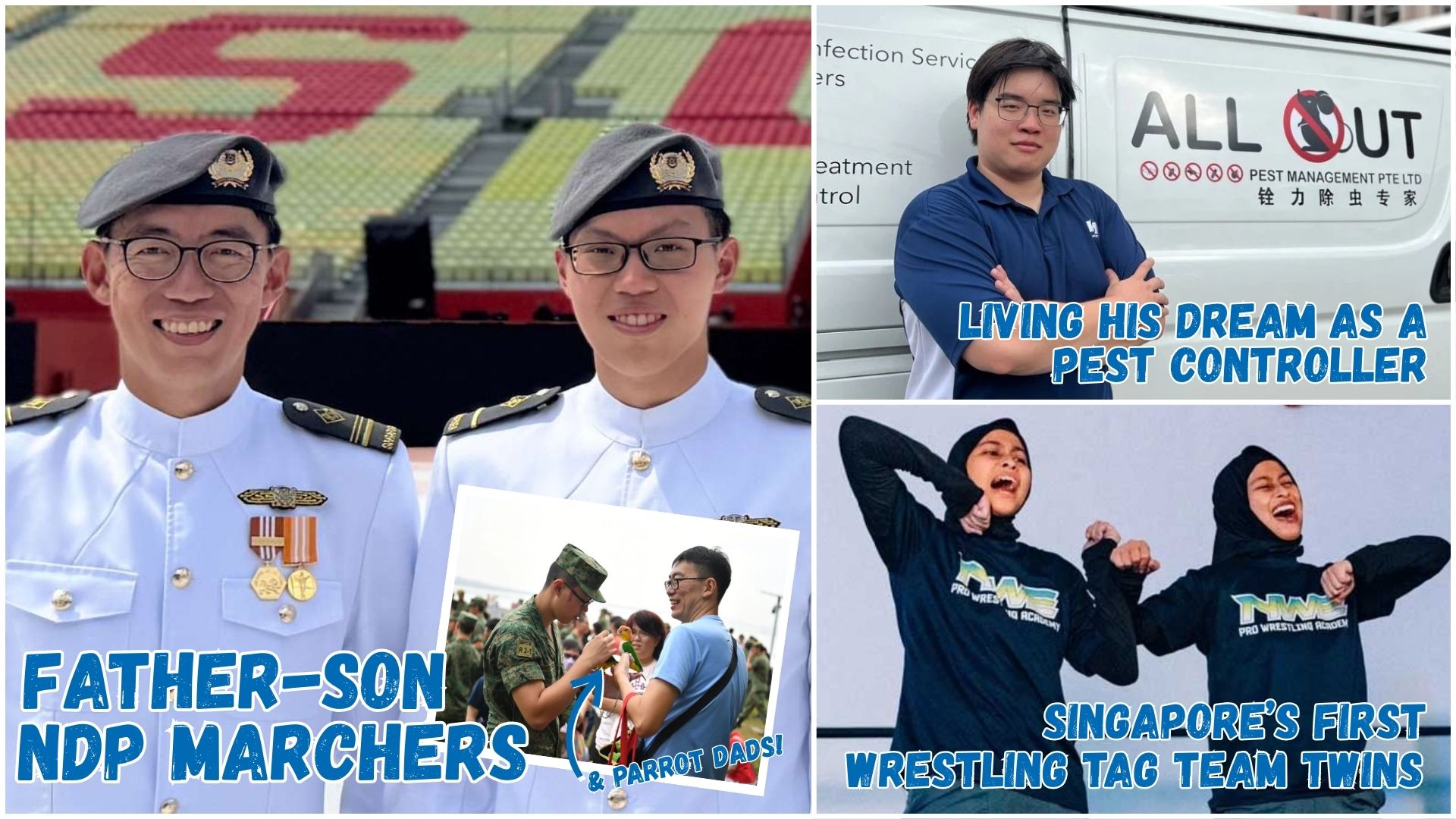Championing Care: How One Operations Executive Is Enhancing Healthcare for Migrant Workers
Where do migrant workers go when they get sick? Given the rising cost of living in Singapore, coupled with the demands of their work, it’s important that they have access to quality affordable healthcare - but that’s easier said than done. On top of language barriers and cultural differences, migrant workers need to know where to seek treatment in the first place.
Enter SATA CommHealth, a non-profit charitable healthcare organisation for the vulnerable in our communities. As an Anchor Operator for the Ministry of Manpower (MOM)’s Primary Healthcare System, SATA CommHealth provides primary healthcare services at medical centres, along with 24-hour telemedicine services for migrant workers.
In 2022, they started the Medical Centre for Migrant Workers (MCMW) project, culminating in five medical centres across Singapore. These centres provide everything from medical check-ups, to acute and chronic medical consultation and treatments, to providing patients with preventative medicine.
While medical staff might be at the frontlines at these centres, even non-medical staff are making a difference - take Manfred Neo, 32, a former COVID-19 swabber whose experiences in the healthcare sector during the pandemic inspired him to join SATA CommHealth in 2022 as an operations executive. As someone who oversees project execution, Manfred helps ensure that the organisation can make a difference sustainably by adhering to timelines and budget constraints.
“My focus on supporting migrant workers' healthcare needs comes from witnessing firsthand the challenges they face in accessing healthcare due to language barriers, cultural differences, and limited resources,” he said in an interview with Wonderwall.sg, where he shared at length about his aim to contribute to a more inclusive and accessible healthcare system.
Read the rest of our interview with Manfred below:
How did you first become interested in working with migrant workers in the healthcare sector?
Growing up in a diverse environment, I witnessed firsthand the challenges faced by migrant workers in accessing healthcare services due to language barriers, cultural differences, and limited resources. Migrant workers encounter difficulties in articulating their medical conditions or concerns, often requiring considerable patience to comprehend their expressions. These experiences ignited my passion for healthcare equity and inspired me to pursue opportunities to support migrant workers' health needs.
Moreover, my interactions with migrant workers have highlighted the resilience and strength of these communities, despite the adversities they encounter. Their stories of perseverance and determination have inspired me to dedicate myself to making a meaningful difference in their lives.
Working in the healthcare sector provides me with the opportunity to address these disparities and contribute to positive change. By advocating for inclusive and accessible healthcare services, I aim to empower migrant communities and promote their overall well-being. I firmly believe that everyone deserves the right to healthcare, and I am committed to playing my part in making this belief a reality for migrant workers and underserved populations everywhere.
Could you share a bit about your background and how it led you to your current role as an operations executive with SATA?
Initially, I spent five years working as a project manager in the construction industry. However, with the onset of the pandemic and the subsequent downsizing of the industry, I decided to explore new opportunities.
I transitioned into the healthcare sector by joining the Ministry of Health (MOH) as a swabber, where I played a crucial role in COVID-19 testing efforts. During my nine months in this role, I gained valuable insights into the healthcare industry and developed a passion for contributing to public health initiatives.
Recognising my potential, I was promoted to a supervisory position, where I led a team and honed my leadership skills. This experience deepened my understanding of healthcare operations and reinforced my desire to make a positive impact in this field.
Following my tenure at MOH, I seized the opportunity to join SATA CommHealth as an Operations Executive. Drawn to the organisation's commitment to providing accessible healthcare services, I was eager to leverage my skills and experiences to support its mission.
What are some of the unique challenges faced by migrant workers in accessing healthcare, and how does your role address these challenges?
Migrant workers encounter several unique challenges in accessing healthcare, including language barriers, cultural differences, lack of awareness about available services, financial constraints, and limited access to healthcare facilities.
As an operations executive with SATA CommHealth, my role addresses these challenges in several ways:
Cultural Competence: We prioritise cultural competence in healthcare delivery by training our staff to understand and respect the cultural beliefs, practices, and preferences of migrant workers. This ensures that care is provided in a manner that is sensitive to their cultural background, promoting trust and improving communication.
Language Access: We offer language interpretation services to bridge the communication gap between healthcare providers and migrant workers who may not speak the local language fluently. This ensures that vital information about their health and treatment options is effectively conveyed and understood.
Community Outreach: We conduct targeted community outreach programmes to raise awareness among migrant workers about available healthcare services, their rights, and how to navigate the healthcare system. This empowers them to make informed decisions about their health and seek timely medical assistance when needed.
Financial Support: We work to make healthcare services more affordable and accessible to migrant workers. We provide a $2 telemedicine service to migrant workers, enabling direct consultations with our doctors and very affordable access to medications.
By addressing these challenges through culturally competent care, language support, community outreach, and financial assistance, we aim to improve healthcare access and outcomes for migrant workers in our community.
In your opinion, what are the most pressing healthcare issues facing migrant workers in Singapore today?
One significant concern is workplace health and safety. Migrant workers often face occupational hazards and may experience workplace-related health issues. Ensuring adequate workplace health and safety standards, conducting regular health screenings, and providing access to occupational healthcare services are essential steps to protect their well-being.
Mental health is also a growing concern among migrant workers. Factors such as isolation, stress, and uncertainty about their future contribute to mental health challenges. There is a need for mental health awareness programs, counselling services, and support networks tailored to the unique circumstances and needs of migrant workers.
Chronic disease management is another area of focus. Many migrant workers have pre-existing chronic conditions that require ongoing management. Improving access to affordable medications, regular healthcare monitoring, and patient education on disease management are critical priorities.
The COVID-19 pandemic highlighted significant issues related to infectious diseases and pandemic response. Migrant workers, especially those in crowded living conditions, are vulnerable to infectious diseases. Enhancing pandemic preparedness, access to testing and vaccination, and addressing social determinants of health are crucial in mitigating the impact of infectious diseases on migrant communities.
What motivates you to continue working in this field despite any difficulties or obstacles you may encounter?
What motivates me to continue working in this field despite difficulties or obstacles is the profound impact I can make in improving the lives of migrant workers. Witnessing positive changes, such as better healthcare access, improved well-being, and increased empowerment within these communities, fuels my passion and dedication. Knowing that my efforts contribute to positive outcomes and meaningful change keeps me motivated and committed to this important work.
Each day presents new opportunities to make a difference and knowing that my contributions contribute to positive outcomes and meaningful change keeps me motivated. It's a reminder of the importance of our work and the difference it makes in the lives of those we serve. In the face of difficulties, this sense of purpose and the tangible impact we have on individuals' lives keep me committed to this vital work.
For the latest updates on Wonderwall.sg, be sure to follow us on TikTok, Telegram, Instagram, and Facebook. If you have a story idea for us, email us at [email protected].










